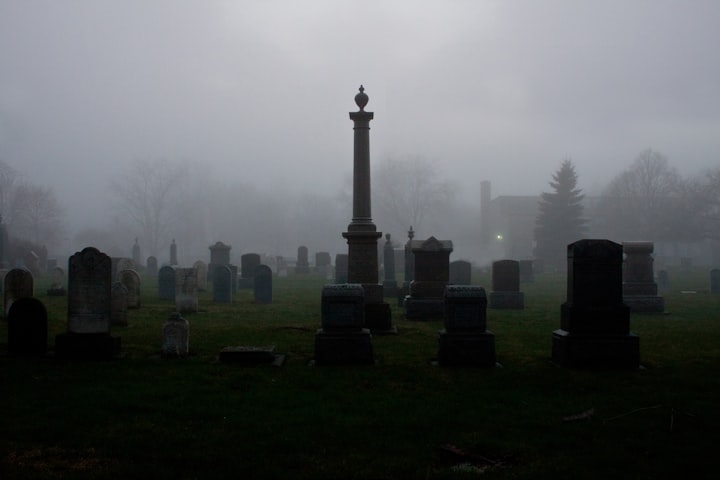Footsteps on Your Grave
Exploring the meaning and origin of the phrase "Somebody just walked over my grave"

I found myself down a bit of a research rabbit-hole recently—as often happens—when a friend questioned the logic of the phrase ‘someone must have walked over your grave’. We ended up in a lengthy discussion about the hypothetical workings of parallel timelines, past lives and the like in our attempts to postulate the meaning of the expression. A few days later I found myself still curious about the origins of the phrase and its intended meaning. I found the answers quite fascinating, and it seems fitting to share them here.
The phrase is generally uttered when a person experiences a sudden shudder, and seems to have originated in the 18th century from earlier folk legends. In England in the Middle Ages there was an explicit belief in everyday communication between the living and the dead, or between the realm of everyday life and that of the afterlife. In short, the distinction between life and death was not as clear cut as most of us consider it today. Instead of speaking of the dead commemoratively, as we do today, Medieval mourners would instead speak directly to the deceased, with the belief that they were heard and understood.
It was also believed that a person’s final resting place was pre-determined, and so the expression ‘someone is walking over your grave’ referred explicitly to the idea of a real person walking over the physical location of one’s future grave site, no matter how far into the future their death might be.
The earliest known record of the expression in print Simon Wagstaff's (a pseudonym of Jonathon Swift) A Complete Collection of Genteel and Ingenious Conversation in 1738, where he wrote “Miss [shuddering]. Lord! there's somebody walking over my Grave.” The old folk tale was also referred to by novelist Harriet Parr, in Basil Godfrey's Caprice in 1868. Here, Parr wrote “Joan shuddered - that irrepressible convulsive shudder which old wives say is caused by a footstep walking over the place of our grave that shall be.”
The folk belief is also recorded in Dutch, American, and Irish literature. Several American works refer to a variant containing a goose, which, according to The Massachusetts Spy in 1849, originated in Ireland. This publication stated “There is a saying common in Ireland, when one feels a sudden chill that acts upon the skin, ‘I feel as if a goose were walking over my grave.’” This likely also connects the association of goose bumps or goose pimples with a sudden feeling of chilliness.
Interestingly, the French version of the phrase looks to the past rather than the future. The expression 'on marche sur ma tombe’ (somebody is walking over my grave) appeared in Revue des traditions populaires in 1895, and seems to not refer to one’s future grave, but instead to the past grave of someone who “believes to have already lived”. I was particularly interested in this version of the phrase, as my first thought when discussing the potential meaning of the term with friends was that it could refer to past lives, or be related to reincarnation. This French publication quoted a communication from M. A. Certeux, which included the following (translated to English):
Then this lady, after explaining that she had a moment before felt a shudder, confesses to me that she believes to have already lived and that the impression felt comes from the fact that somebody has walked over her grave. — In this connection, several persons say in their turn they think that their soul has already inhabited other bodies and that their dreams are visions of their past, present or future existence.
I’m sure there are more modern, scientific explanations for the body shuddering involuntarily, or experiencing a sudden chill, but I find myself more drawn to these fanciful versions, and the to the idea that we are, in any singular moment, intrinsically connected to our past and future selves.






Comments
There are no comments for this story
Be the first to respond and start the conversation.